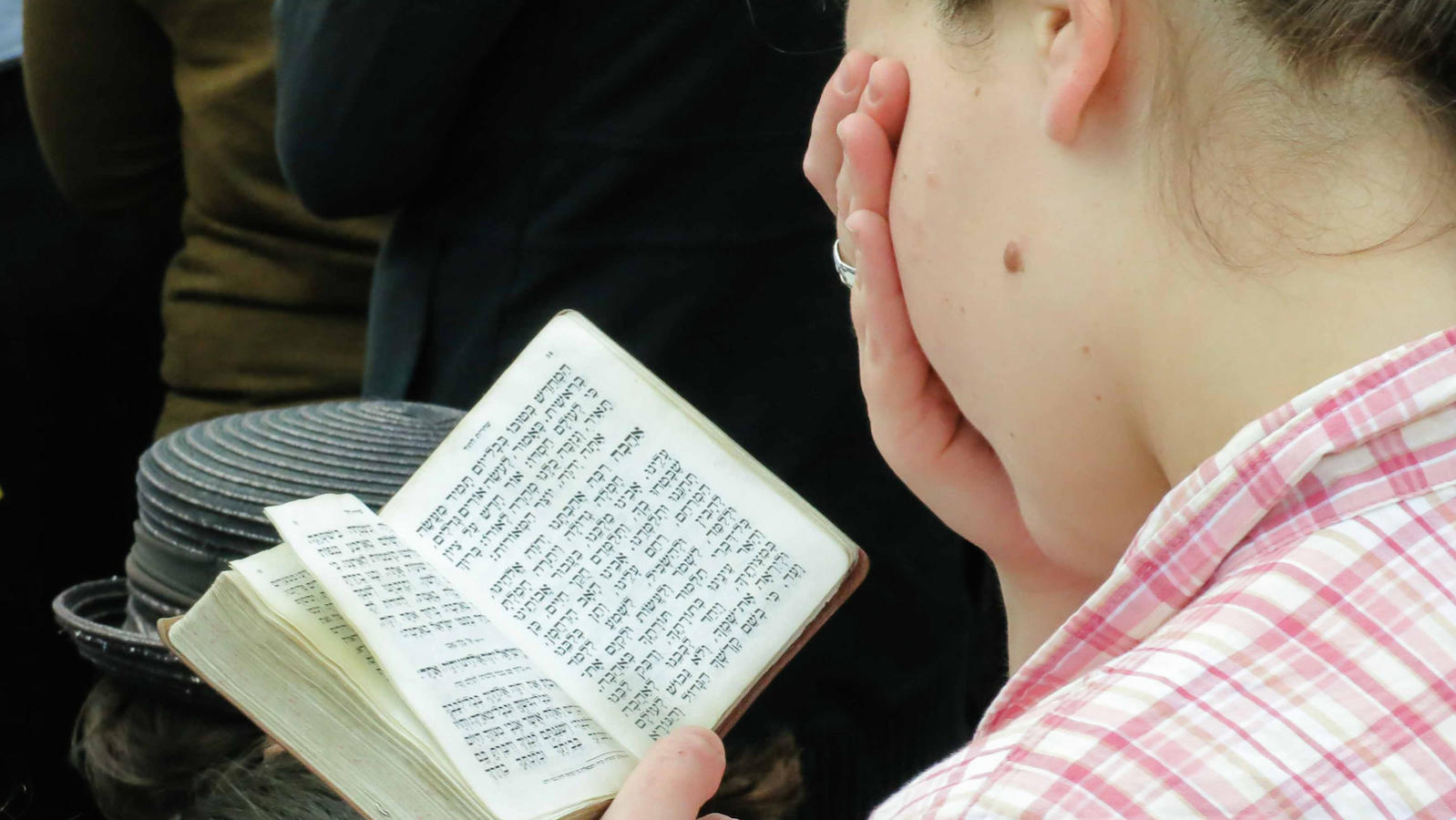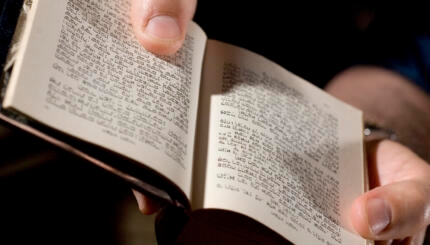Question: Why do you cover your face when you say the Shema prayer?
Mo, Texas
Answer: It’s true. The Shema is said with a hand held over the eyes (usually the right hand), but don’t be afraid of the dark, Mo!
Have you ever noticed how when you’re trying really hard to concentrate, you sometimes close your eyes to help you focus? That’s the basic idea here, too. We cover our eyes to help us concentrate while saying the important words in the Shema, which express faith in God and God’s unity.
Find the full text of the Shema here!
With your help, My Jewish Learning can provide endless opportunities for learning, connection and discovery.
The Talmud (Berakhot 13b) is the original source for this custom. Here there is a mention of Rabbi Judah the Prince covering his eyes while he said the Shema to block out the distractions of the students around him. This behavior was codified in the Shulhan Arukh (OH 61:4-5).
There are, however, other explanations for the tradition. According to some commentators, such as Rabbi Ezekiel Landau (17th-century Prague), and the contemporary Rabbi Yissocher Frand, we cover our eyes because it would be difficult to express complete faith in God while looking at the pain in the world around us.
Believe it or not, the use of the right hand has to do with the toilet facilities of ancient times. Left hands were used to wipe one’s behind, and so were not appropriate (or sanitary) for religious affirmations.
For many Jews, the impulse to cover one’s eyes while saying the Shema is difficult to suppress. There’s a famous story about Rabbi Yosef Kahaneman, a prominent Lithuanian rabbi (1886-1969): after the Holocaust, he tried to find Jewish children whose parents had hid them in convents and church orphanages during the war. Rabbi Kahaneman would walk through orphanages in Europe, reciting the beginning of the Shema. Instinctively, some of the children would cover their eyes, and cry out, “Mama, Mama!”
Having the correct kavanah, or intention, while saying any prayer is considered very important, but the message of the Shema — its simplicity and intensity — requires an extra level of concentration.
Shema
Pronounced: shuh-MAH or SHMAH, Alternate Spellings: Sh'ma, Shma, Origin: Hebrew, the central prayer of Judaism, proclaiming God is one.
Talmud
Pronounced: TALL-mud, Origin: Hebrew, the set of teachings and commentaries on the Torah that form the basis for Jewish law. Comprised of the Mishnah and the Gemara, it contains the opinions of thousands of rabbis from different periods in Jewish history.



